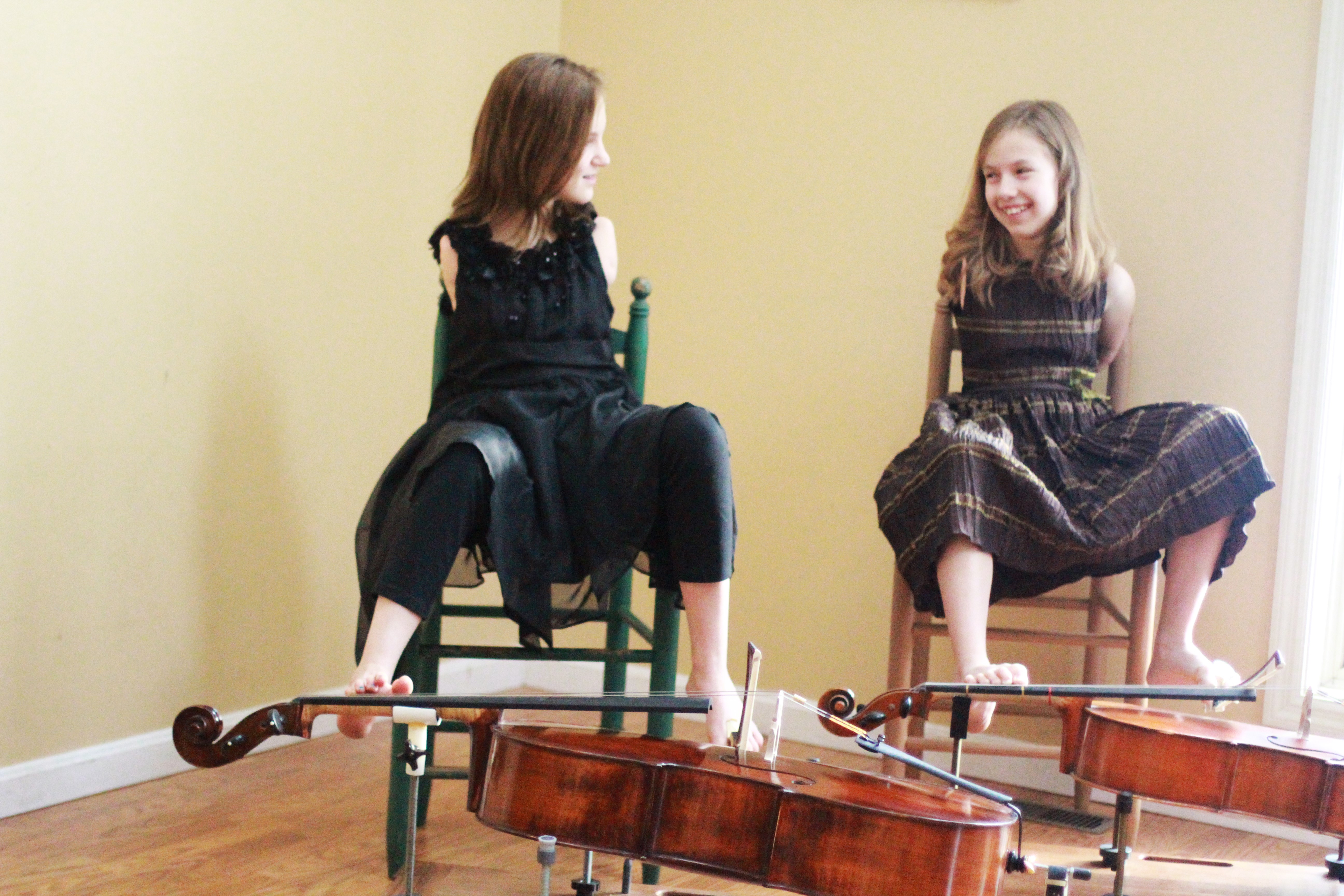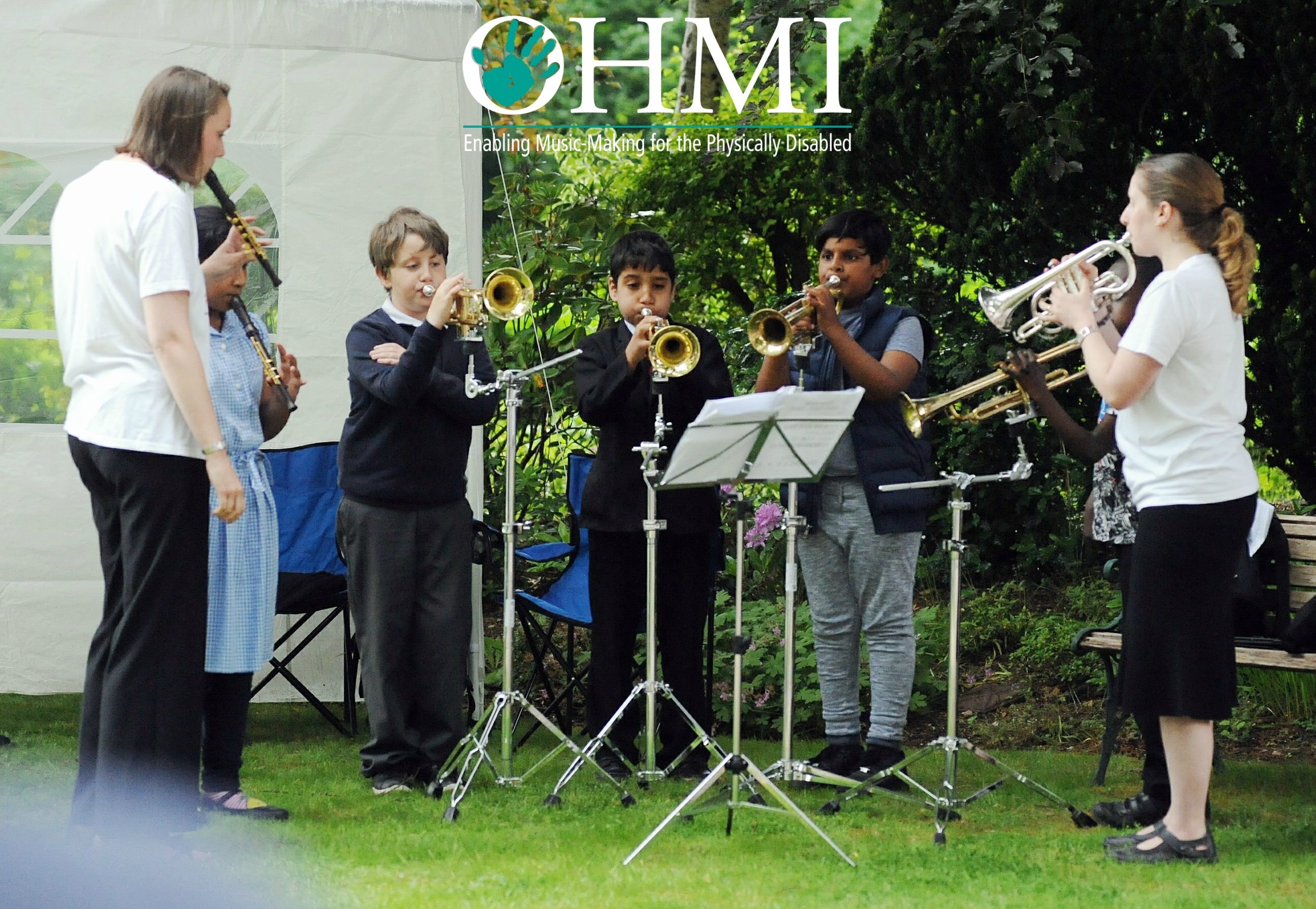
What is an adapted instrument? And, how could it help access to making music?
We talk to two Take it away retailers who are developing adapted instruments.
Developing and adapting musical instruments, and inventing instruments, opens up access to millions more people to participate in making music. There are many reasons for adapting musical instruments, from physical disabilities to allowing simpler access for younger players.
In the UK, the OHMI Trust pioneers the development and adaptation of musical instruments for those who are physically disabled. Innovations in making new or adapted musical instruments, for use with one hand or arm, are celebrated at OHMI’s annual conference and annual awards.
This year, Take it away have formed a consortium with OHMI, Drake Music, OpenUp Music and Youth Music with the aim of making musical instruments more widely available to aspiring musicians across the UK. On 7 & 8 September 2018, we are delighted to be supporting OHMI’s annual conference in Birmingham.
Ahead of the conference, we contacted our Take it away retailers to ask about their experience of offering adapted instruments.
Engineering and 3D printing
Derek Himsley runs StringWind Repairs in Ashford, Kent. He repairs all sorts of instruments; as a former engineer, he loves the challenge of understanding how complex instruments work, taking them apart and putting them back together. He became interested in the challenge of making adapted instruments to suit specific needs following a talk by OHMI that he attended.
Derek feels strongly that everyone should be able to access musical instruments and doesn’t believe that disability should be a barrier to this.
The OHMI talk came at the right time as Derek was about to come into contact with 1,000’s of second-hand instruments ripe for adoptions.
In 2014, a Channel 4 documentary, Don’t Stop the Music, included a nationwide appeal for unwanted musical instruments. 7,000 instruments were collected with the aim of redistributing them to benefit over 10,000 primary school students a year. Derek’s skills as an expert instrument repairer were in demand!
He contacted them to offer his services and ended up helping to sort, grade and categorise the instruments, identifying what could be repaired and sent to the schools.
Knowing about OHMI’s work, Derek suggested that they donate some instruments to OHMI. Twenty instruments ended up being adapted and distributed to one-handed students through OHMI.
Derek’s interest in this area of engineering led to him to collaborate with a Nuffield Scholar to make another one-handed violin during a work placement. Using a 3D printer, they printed an adaptation to the neck of the violin, which simulated the function of fingers. These were then operated by foot pedals, even simulating the same vibrato you get when playing with hands.
Derek is inspired by this work and enjoys the challenge; “I have semi-developed ideas for instruments for musicians with no limbs, one day I’d like to develop those myself” he says.
Simplifying instruments for entry level
Howarth of London has a range of adapted and more accessible instruments. These include a wooden, keyless flute, an oboe with reduced keywork and smaller bassoons.
One instrument that they are particularly proud of is the Howarth of London adapted clarinet. The Junior MX clarinet is a lighter and simpler clarinet model, for younger students. By removing keys not needed in the first stages of learning, they made the Junior MX almost 200g lighter than a standard student clarinet.
They use the same body as their standard clarinet to ensure the quality of the instrument and help the clarinetist produce a good sound, but reduced the keywork to make assembly easier and removed link mechanisms between joints to increase the durability.
In addition, they developed a special mouthpiece to make attaching a reed quick and easy. The SimpleFit mouthpiece is a one-piece unit that combines a high-quality mouthpiece with a custom-designed ligature.
The instrument has been popular with teachers. Northamptonshire Music and Performing Arts Trust use the clarinets and sent a lovely message to Howarth of London recently to say that the clarinets are “the instrument of choice for most teachers delivering clarinet projects to children in years 3 and 4.”
More information
We’d love to hear from musicians and music retailers about their specific needs for adapted instruments, or completely bespoke instruments. Please get in touch with us at info@takeitaway.org.uk


